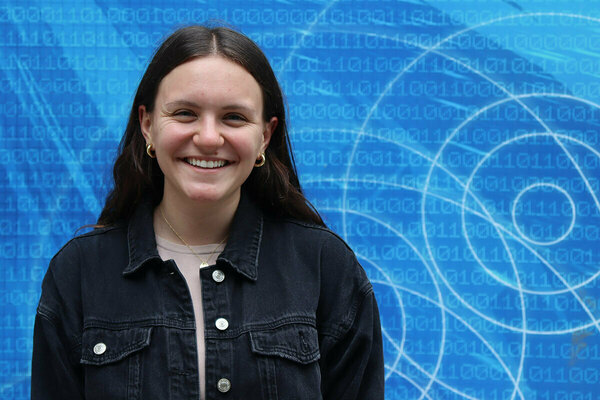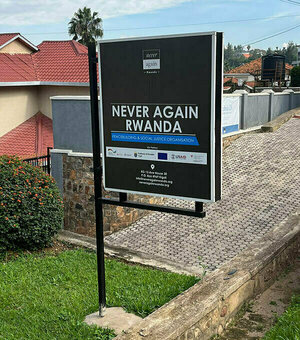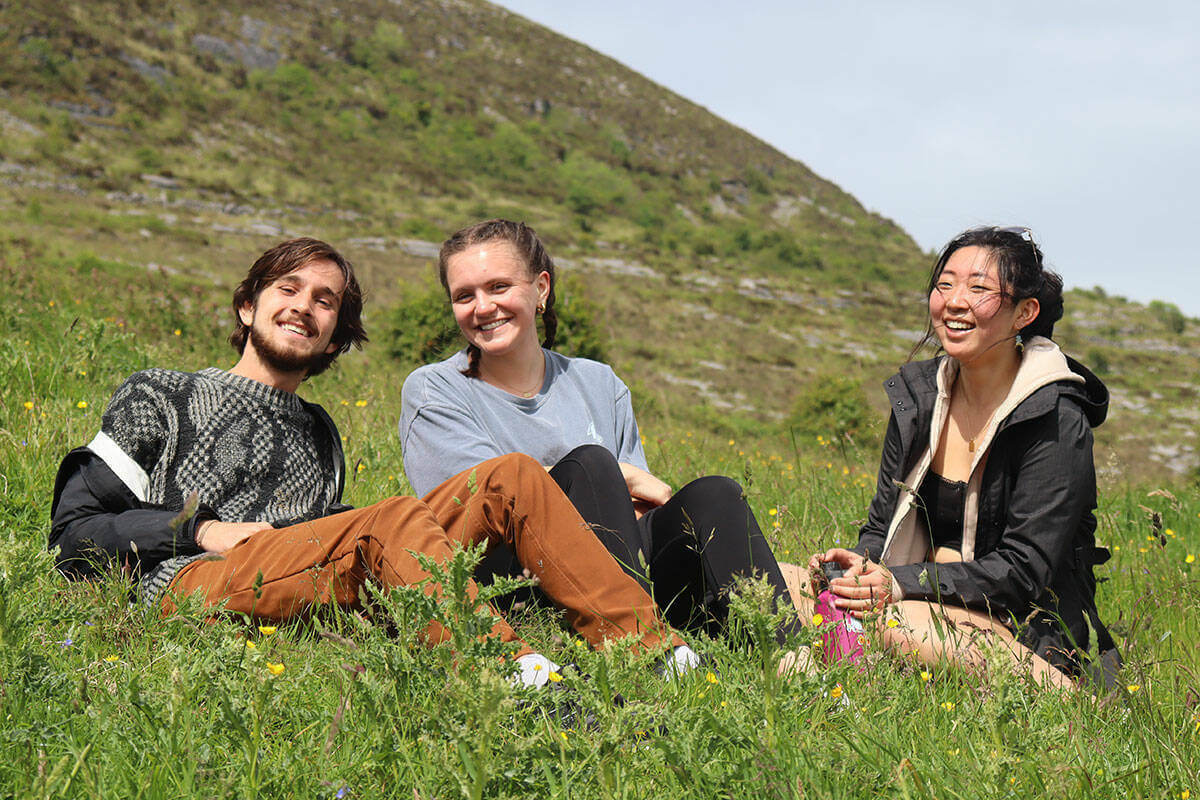

Grace Connors had long been interested in computer science, but she wasn’t sure if she could major in it when she first started at Notre Dame.
There were just too many other things she wanted to discover.
“I've always just had a lot of interests,” she said. “And I was very passionate about the computer science courses I started taking as a freshman, so I was looking to find a way to continue that part of my education while also exploring other areas.”
Then, during her sophomore year, the College of Arts & Letters launched a new major that would allow her to develop her expertise in computer science while also expanding her knowledge in other academic areas. As soon as Connors heard about the Bachelor of Arts in Computer Science (BACS), she knew it was right for her.
“I honestly think I might have been the first person to submit an application,” she said. “I was really excited about the program.”
Now a senior, Connors has taken extensive computer science coursework in the College of Engineering while also having room in her schedule to pursue a supplementary major in peace studies. Along the way, she’s had four internships that have helped her consider what her future career will look like — one that, ideally, involves using computer science as a tool for peacebuilding.
“There are so many opportunities at the intersection of these two areas,” she said, “from helping peacebuilders further their efforts with technology through digital social movements and online civilian journalism, to the use of data science for the analysis and visualization of information, to the creation of specific tech built for peacebuilding purposes.”
“Many different employers have shared with me that it is important that you have the technical skills that computer science is giving you, but also important that you're able to think creatively and problem solve, which comes from that liberal arts education.”
The ‘aha’ moment
Connors came to Notre Dame as a political science major, but she wasn’t sure it was the right fit. When she told her friends about her uncertainties, several suggested she try a peace studies class. It clicked right away.

“I knew I needed to switch to peace studies when I had that ‘aha!’ moment in my intro class that I had in my first coding class back in high school,” Connors said. “It became clear to me that peace studies presents a very strategic way to address many of the seemingly intractable problems of our time, a theme which has continued to be reiterated throughout the many peace classes I’ve taken since freshman year.”
She added a peace studies major, and when the BACS was announced, she knew she had found her perfect combination of disciplines.
Each student in the BACS program chooses their own area of focus within the liberal arts. Pairing those areas with computer science helps to foster a strong sense of exploration and imagination, Connors said.
“I find the degree to be a creative one, as we are constantly thinking about unique ways to use technology within our additional fields of interest to simplify, amplify, and expand upon our work,” she said.
The diversity of courses on her schedule has been exciting and challenging, she said, allowing her to constantly stretch her brain in different directions.
“Changing the way you’re thinking throughout the day is really important,” she said. “So for me, two days a week, I start the day in my digital peacebuilding class, talking about different ways to employ technology towards peacebuilding efforts, and then go straight over to my algorithms class, where I am learning to design and evaluate algorithms that might be used in that technology.”

In-demand skills
Blending computer science and peace studies wasn’t just interesting to Connors — she’s already found the skills she’s developing to be of value. One day, when mentioning her majors to a coworker, their response was “and that is exactly what we need right now."
“Many different employers have shared with me that it is important that you have the technical skills that computer science is giving you, but also important that you're able to think creatively and problem solve, which comes from that liberal arts education," she said.
Her first internship at Notre Dame was during the COVID-related extended winter break in 2020, when she helped FADICA, a Catholic philanthropic network, clean up data to make it easier for organizations to connect with potential donors and researched creative approaches to homelessness across the country.
The following summer, she landed a coding position with Platform Venture Studios, a Silicon Valley-based company that helps startups launch their businesses.
In the spring of her junior year, Connors studied abroad in Rwanda, where she interned for the nongovernmental organization Never Again Rwanda.
Her main focus there was to help plan the organization’s biannual Peacebuilding Institute, a two-week education program for young peacemakers from around Africa. She also built and edited pages for NAR’s website and created a presentation on intrafamily conflict in post-genocide Rwanda, which was delivered to the country’s Ministry of Unity and Civic Engagement after she finished her internship.
“Both of those experiences really proved to me the value my computer science skills can have in a variety of fields — and further reaffirmed my goal after graduation to work for a company or organization using tech to help people, in whatever form that might take.”
Connors then traveled to Dublin, Ireland, where she spent her summer working with Access Earth, a tech startup that aims to create the world’s largest database of accessibility information. As a software engineering intern, she was tasked with rewriting the company’s app code from Ionic/Angular into Flutter, a coding language she learned in her Mobile Computing class at Notre Dame.
“Getting more into the code and finding my rhythm with it all, as well as becoming closer with the team and seeing how much potential for good they all saw within their product, really pushed me to do my best work,” she said. “And I’m quite proud of what I accomplished over those 10 weeks.”
Connors’ internships in Rwanda and Ireland were incredibly impactful, she said, in helping her realize what type of work she wants to do in her career.
“Both of those experiences really proved to me the value my computer science skills can have in a variety of fields,” she said, “and further reaffirmed my goal after graduation to work for a company or organization using tech to help people, in whatever form that might take.”
As she prepares to be among the first cohort of BACS students to graduate, Connors is more passionate than ever about her ability to effectively blend computer science and peace studies in the future. It’s a vision that has only been enhanced, she said, by Notre Dame’s mission to be a force for good in the world.
“It’s the core impact Notre Dame has had on me,” she said. “That kind of messaging is really valuable, and it’s been reinforced in all of my classes.”
Originally published by at al.nd.edu on November 16, 2022.